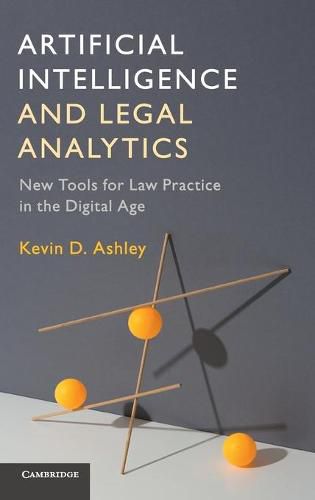Readings Newsletter
Become a Readings Member to make your shopping experience even easier.
Sign in or sign up for free!
You’re not far away from qualifying for FREE standard shipping within Australia
You’ve qualified for FREE standard shipping within Australia
The cart is loading…






The field of artificial intelligence (AI) and the law is on the cusp of a revolution that began with text analytic programs like IBM’s Watson and Debater and the open-source information management architectures on which they are based. Today, new legal applications are beginning to appear and this book - designed to explain computational processes to non-programmers - describes how they will change the practice of law, specifically by connecting computational models of legal reasoning directly with legal text, generating arguments for and against particular outcomes, predicting outcomes and explaining these predictions with reasons that legal professionals will be able to evaluate for themselves. These legal applications will support conceptual legal information retrieval and allow cognitive computing, enabling a collaboration between humans and computers in which each does what it can do best. Anyone interested in how AI is changing the practice of law should read this illuminating work.
$9.00 standard shipping within Australia
FREE standard shipping within Australia for orders over $100.00
Express & International shipping calculated at checkout
The field of artificial intelligence (AI) and the law is on the cusp of a revolution that began with text analytic programs like IBM’s Watson and Debater and the open-source information management architectures on which they are based. Today, new legal applications are beginning to appear and this book - designed to explain computational processes to non-programmers - describes how they will change the practice of law, specifically by connecting computational models of legal reasoning directly with legal text, generating arguments for and against particular outcomes, predicting outcomes and explaining these predictions with reasons that legal professionals will be able to evaluate for themselves. These legal applications will support conceptual legal information retrieval and allow cognitive computing, enabling a collaboration between humans and computers in which each does what it can do best. Anyone interested in how AI is changing the practice of law should read this illuminating work.